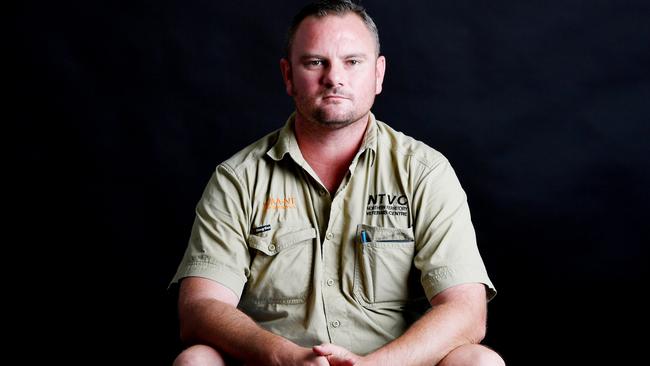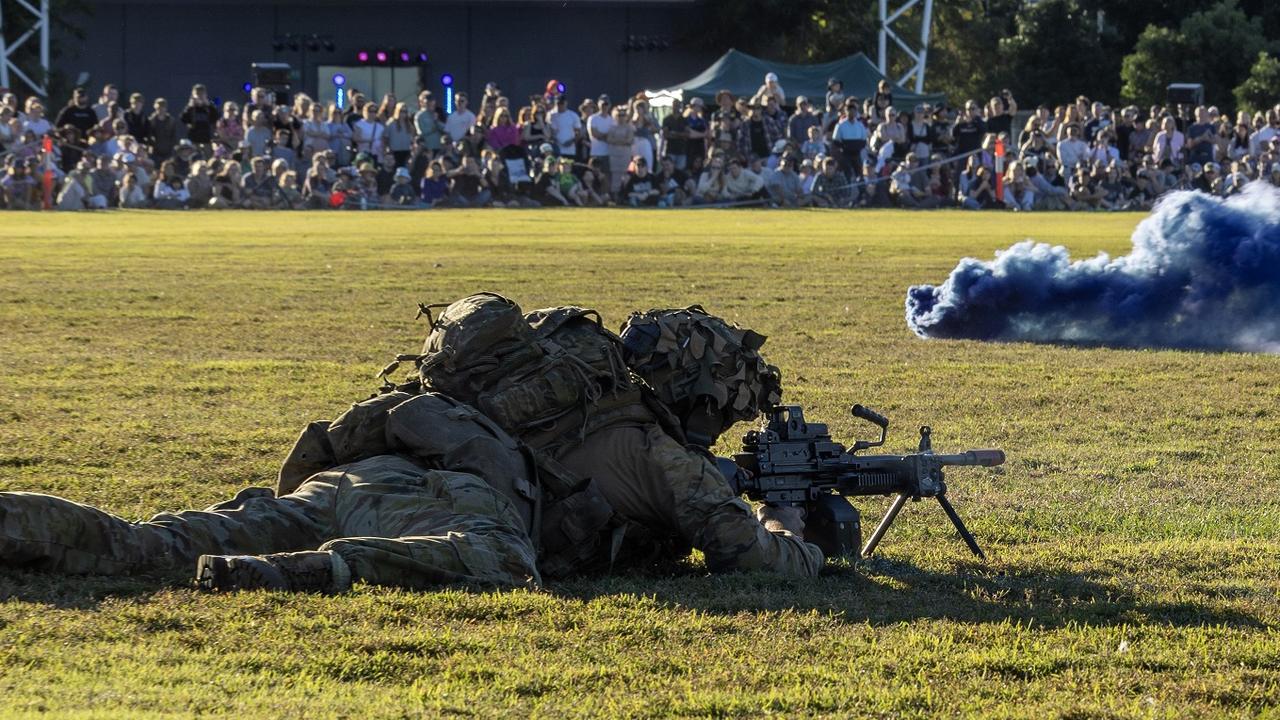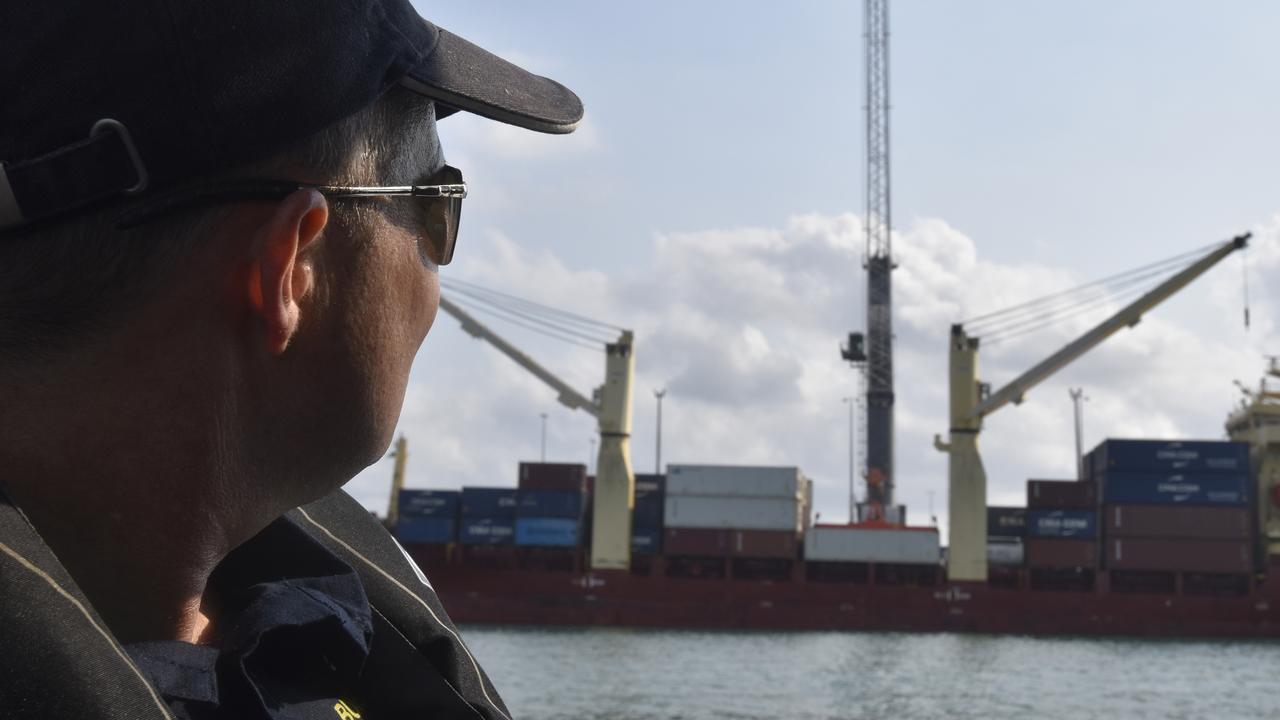Veteran’s battle against PTSD a life-changing fight
IRAQ veteran Alex Kaczmarek knows all too well the dark places post traumatic stress disorder can lead people

Northern Territory
Don't miss out on the headlines from Northern Territory. Followed categories will be added to My News.
IRAQ veteran Alex Kaczmarek knows all too well the dark places post traumatic stress disorder can lead people.
For him it was homelessness, alcohol abuse and suicidal thoughts.
“Every day for about eight years I wanted to shoot myself in the head,” he said. “The only thing that stopped me was knowing that someone would have to come retrieve the body.”
There were times when Alex felt he was losing his battle against PTSD but now he is winning the war and he is also helping others to rehabilitate.
Alex joined the Australian Army as an infantryman but spent most of his service as a cavalryman in Royal Australian Armoured Corps. He was posted to the 2nd Cavalry Regiment in Darwin for six years and in 2005 he deployed to Iraq as an ASLAV driver and a machine gun operator in a personnel carrier.
“Iraq was very adrenaline driven, very fast paced. During the almost nine-month deployment, we only had three days where we didn’t patrol. We got ambushed, we got indirect fire almost daily ... it was part and parcel of the job.”
When Alex came back to Australia his close friends and family noticed something wasn’t right but it took a year for him to realise, too.
“It began with sleep — lack of sleeping, insomnia and nightmares began to affect my day,” he said.
“I’d go a few days without sleep, which turned into weeks, which turned into months. Before I knew it, I got to a point where I couldn’t remember if I was asleep or awake.
“I had uncontrollable adrenaline from my inner brain reacting to situations that weren’t actually occurring, telling my body to release massive amounts of adrenaline and then I wasn’t sure what to do with it so I’d have a panic attack.
“Probably for about a year I had to stop and vomit every day on the way to work through anxiety.”
Alex reached out for help through the Army but treatment wasn’t forthcoming. “I thought I was going mentally insane,” he said. “I didn’t believe I had PTSD because the Army told me I didn’t have PTSD.”
Alex was eventually sent to an independent civilian psychiatrist who said he had the warning signs of conflict-related PTSD.
Alex discharged from the Army in November 2009 due to the lack of support. By that stage he was drinking heavily every day to numb his feelings and soon found himself on the streets of Sydney and Darwin.
That was Alex’s rock bottom.
“You think back and only a few years previously you were doing protection parties for the Prime Minister of Australia in a foreign country in a war zone and now you’re walking the streets with a bag of clothes,” he said.
“I slept at train stations, car parks, in the bush. I had a ute luckily when I was up here so, when I could afford it, I went and stayed in a caravan park so I could use the shower facilities. I pretty much long-grassed it for a bit.”
All the while Alex was battling PTSD, anxiety, depression, physical injuries and suicidal thoughts.
A helping hand from Darwin veteran support officer, Mark Keynes, and treatment at the St John of God Hospital in Richmond, NSW was Alex’s saving grace.
During his treatment, Alex’s PTSD was traced back to a horrific car accident he witnessed in Iraq.
During an aggressive route clearance in Iraq, a civilian car was run off the road due, Alex believes, to the army presence.
“That car just happened to be full of children. Everyone in the car died,” he said. “And we couldn’t stop due to the threat level at the particular time.”
With treatment, Alex began to improve. “I really believe that I’ve broken the PTSD cycle,” he said. You still have your good and bad days as anyone does (but) I’m at the stage where I’m much more in control.”
Today Alex is a veteran support officer at the newly formed Northern Territory Veteran Centre.
He encouraged any veterans with PTSD symptoms to seek help.
“If you’re scared to tell your hierarchy, seek support outside the military,” he said.
Confidential veteran support can be found at the Northern Territory Veteran Centre by calling 0475 381 269


